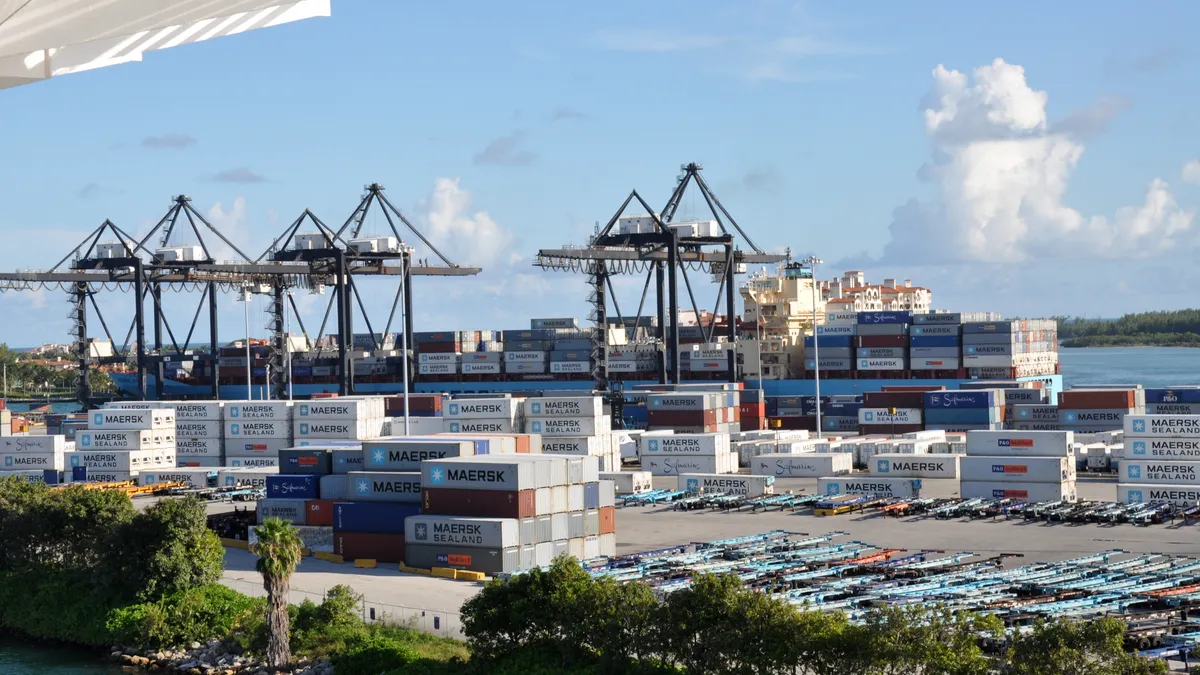Dive Brief:
- A change in direction allowing southern ports to successfully host ships bearing imported produce from Latin America shows signs of early success, promising to transform the U.S. food supply chain, according to a recent opinion article in JOC.
- Ports in the south were traditionally barred from hosting refrigerated goods due to concerns over fruit flies, but a pilot program between the U.S. Department of Agriculture and the Port of Savannah in 2014 changed that. The program benefited grocers, too, since shipping directly from the south rather than routing through the northeast was shown to increase profit margins by up to 20%.
- This pilot program, along with the expansion of the Panama Canal and a renewed interest in the fresh food markets sets the stage for the South to take a greater role in the U.S. food supply chain. However, great amounts of investments are still necessary to ensure the south can handle the growing cold chain capacity needs.
Dive Insight:
The opinion piece highlights how three main trends are coming together to the benefit of southern ports across the U.S. The convergence of increased consumer demands for fresh foods and fast shipping with greater cold chain technology and investments in shipping capacity make the sector a promising investment for many ports.
And the ports are consistently announcing new expansions, deepening projects or intermodal transport upgrades. The Georgia Ports Authority, for example, recently announced a new intermodal project with the goal of increasing direct shipping speed to reach markets as far as Chicago — markets which used to be dominated by the Northeast.
Carriers, too, have taken note of this trend and are investing heavily in new cold chain transport technology and facilities in the hopes of capturing greater market share. Maersk Line and Hapag Lloyd recently announced increased capacity and technology investments in reefer units, for example.
The source to fund these projects is there, too. The author of the Journal of Commerce article is a Senior Vice President of Sun Trust Bank, claiming investment in the sector will be profitable, and U.S. Congress recently passed a waterways bill that includes support for the modernization of port infrastructure.













